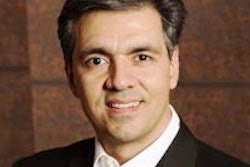
The scandal rocking the U.S. Veterans Health Administration (VHA) has a radiology aspect, according to a letter submitted in May to the VA Office of Inspector General (OIG) by a retired physician from the Central Texas Veterans Health Care System, who claims that the facility hid delays in medical imaging procedures.
The allegations came from Dr. Joseph Spann, an internist, regarding imaging procedures for veterans who sought care at the Department of Veterans Affairs (VA) Austin Outpatient Clinic.
Spann's charges are part of the larger scandal of delayed medical care and preventable deaths at the Phoenix Health Care System. The scandal exploded in April following allegations reported to an OIG hotline and a House Committee on Veterans' Affairs hearing on April 9. The allegations were detailed in an OIG report released on May 28.
Clinical, not clerical
Spann described manipulation of medical appointments in the radiology department at Central Texas Veterans Health Care System -- at the physician level, not the clerical one.
"Specifically, it involved the Chief of Radiology in Temple ... asking ordering physicians to move requested procedures out beyond 30 days so the procedure would appear to have been done within a closer time of the written order," Spann wrote in his letter to the VA. "For example, if I ordered a CT scan of the abdomen and pelvis to be done within 30 days he would cancel the test and ask that I move my requested date out to 60 days."
Requests to delay procedure dates occurred depending on radiology backlog, workload, and staffing, Spann wrote.
"I am not certain of [the] motivation to push out x-ray procedures to later dates," he wrote. "I suspect it was a matter of too many radiology orders and not enough radiologists, equipment, or time. It may also have been to make it appear on paper that the majority of radiology tests in the Central Texas VA were being performed in a timely manner to meet national VA performance measures."
Did patients die as a result of this procedure data manipulation? It's unclear, according to Spann.
"I cannot categorically say that I ever saw a patient die from such manipulated scheduling but I did see several cancer patients have their possible surgery or chemotherapy treatments delayed awaiting the required radiology tests," he wrote.
The Central Texas VA investigated Spann's allegations and found no evidence to support them, according to a statement it released.
"A Central Texas Veterans Health Care System review of Imaging Service activities within the Austin Outpatient Clinic was conducted," the VA said. "The review revealed no requests were made by the Chief, Imaging Service to physicians to change the requested date for ultrasounds, MRIs and CT scans. Imaging appointment dates were changed if the requested diagnostic test was available earlier than requested or if Imaging Service determined that a diagnostic test was medically indicated before the date requested."
In his letter to OIG, Spann also claimed that the chief of staff and chief of primary care at the Central Texas VA disregarded data that showed disruptive numbers of unscheduled patients. Spann and colleagues had tabulated a total of more than 1,400 unscheduled patients per month, so that the usual 12 providers had four to six unscheduled patients per day. Spann also claimed that doctors' patient loads exceeded the VA-established maximum of 1,200 by up to 200 patients.
"By continuing to overload the primary care providers, the Temple supervisors and administrators could produce numbers that would show tremendous productivity," he wrote.
These practices at the Central Texas VA do not serve veterans, Spann concluded.
"The Central Texas VA Healthcare System has fostered a culture of deceit and manipulation of data in order to achieve performance measures that promote only the careers and pay of its administrators and supervisors," he wrote. "In the meantime, the veterans we serve have had their care delayed and downgraded."




















